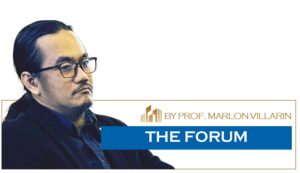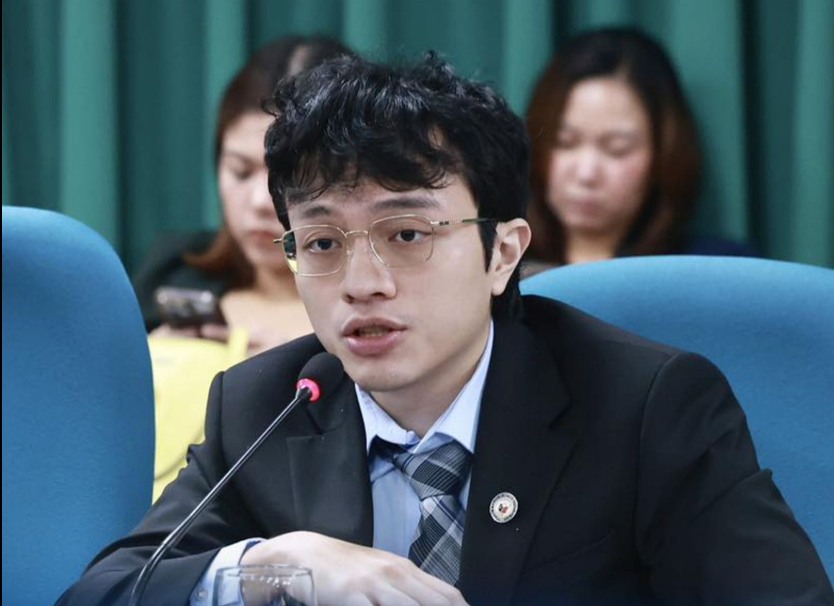As the May 12, 2025 midterm election approaches, the intersection of faith and politics becomes an increasingly complex and critical arena of discussion. The Church, as a social institution deeply woven into the fabric of Filipino society, often assumes the role of a moral compass, providing guidance on the political choices its followers make. With its historical significance as a bastion of faith, hope, and love, as well as a harbinger of salvation, it is only natural that many citizens turn to their religious leaders when faced with the daunting task of selecting candidates to support. However, what happens when the sacred purpose of the Church collides with the murky waters of political ambition and financial gain?
Traditionally, the Church has been regarded as a pivotal agent of political socialization, progressively nudging its congregants towards votes steeped in ethical considerations, values, and shared beliefs. In this context, the Church embodies the promise of dignity and moral clarity, urging its members to engage in the civic process with responsibility and integrity. The call to vote, in this sense, transcends mere participation in democracy; it becomes an act of faith, a demonstration of conviction in the pursuit of a just society. That said, it is disheartening to witness an alarming trend where some religious institutions exploit this profound influence for financial gain, undermining the very moral framework they are meant to uphold.
The Philippines, with its predominantly Catholic population intertwined with various other Christian denominations and faith traditions, presents a unique landscape wherein the Church’s influence on political decision-making is both palpable and powerful. Time and again, leaders have invoked religious principles to steer their congregants’ choices at the ballot box, often positioning themselves as paragons of morality, justice, and service. This entwinement of politics and religion reflects an unspoken societal contract, where the Church’s authority rests not only in its spiritual calling but also in its perceived commitment to guiding adherents toward the selection of leaders who embody righteousness. Yet, beneath this ostensibly noble guise lies a troubling reality: as political seasons unfold, some churches have begun to capitalize on their influence over members, treating the electoral cycle as an opportunity for financial enrichment. In some instances, church leaders may openly endorse candidates whose platforms align not with the ethical teachings of their faith, but with monetary compensations or promises of material support.
This precarious shift from moral guidance to commercial endorsement compromises the Church’s role as a bastion of integrity, muddling the lines of righteous leadership versus corrupt expectations. The deep entrenchment of such practices can create an environment where the electorate is left not with clarity or conviction but rather with confusion and moral vacillation. Where should one turn when religious institutions—the very arbiters of moral righteousness—appear to falter in their commitment to justice? It is vital for voters to remain vigilant, discerning between the true teachings of their faith and the opportunistic distortions that engender division and disillusionment.
The call to vote should never be obscured by socio-political convenience or the personal ambitions of those offering guides on how to choose. In reflection, Filipinos are urged to turn inward, to examine their moral compass shaped by years of religious education and community engagement. To navigate the murky waters of electoral politics, it is essential to draw upon the values espoused by the Church: a commitment to truth, service to others, and the pursuit of justice. Public servants ought to be evaluated not merely by their ability to promote themselves but through the lens of their integrity, sincerity, and commitment to uplift the marginalized. The electorate holds the power to foster genuine change, but wielding that power requires a resolute commitment to discernment, prioritized over convenience.
As we stride further into this electoral season, let us extend a prayer not only for wisdom and guidance but for the courage to challenge institutions that straddle the lines of ethics. It is time to advocate for a Church that remains steadfast in its moral declarations while holding its leaders accountable to the principles they profess. Let us collectively stand against the current of corruption and exploitation, choosing instead to uplift the voices that echo the genuine cries for change and embodiment of righteousness. To restore faith in the political process, the Church must serve as an unyielding agent of accountability. By actively promoting engagement with candidates committed to social justice, environmental stewardship, and the common good, the Church can reclaim.
Furthermore, it is crucial to recognize that the Church is made up of individuals, each with varying degrees of influence and perspectives. Hence, congregants should be encouraged to foster relationships with their leaders, advocating for transparency and honesty in their political endorsements. Active participation in community discussions concerning the socio-political climate encourages a spirit of collaboration rather than division. The humility of listening to varied viewpoints, even when they diverge from mainstream religious beliefs, cultivates a more profound sense of shared responsibility and empowers believers to act as changemakers in society. We must galvanize our determination to ensure that our religious communities can adequately represent moral ideals while resisting the allure of materialism that often pollutes political landscapes.
As the Church stands as a guiding light in tumultuous times, it is imperative that it harnesses its influence to advocate for candidates who prioritize the welfare of the populace over personal gain. Such advocacy not only strengthens democratic processes but also instills renewed faith in the integrity of the electoral framework. Engaging in this reflective examination of our faith’s role in politics serves as vital preparation for the electoral season. As voters, we must conscript our beliefs into actions that mirror the core tenets our faith espouses. Understanding that our choices at the ballot box echo our principles is imperative; therefore, we must sift through the distractions to vote not just for candidates, but for ideals that resonate with our aspirations for a society grounded in justice and fairness.
As the Philippine political landscape continues to evolve, we find ourselves at a crossroads. Rather than succumbing to despair, let us reclaim the narrative, advocating for transparency in both our churches and our political institutions. Let us prioritize moral empowerment over chaos, ensuring that the guiding principles of faith remain resolute against the tide of corruption. By committing to these ideals, we can nurture a generation of voters equipped to make informed decisions that reflect genuine convictions rooted in love and justice. In this decisive moment, let us urge one another to remain steadfast, picture a future where the Church embodies its role as a bastion of truth and hope, illustrates the transformative potential of faith in the civic realm, and inspires its followers to engage in the political process with clarity of conscience.
As we approach the polls this May 12, 2025, let us echo the call to action from the very Church that nurtures our souls: to vote with integrity, guided by the moral compass that nurtures our convictions. In doing so, we can stride toward a more equitable and just society, where righteousness prevails over corruption, hope outshines despair, and genuine love transforms our communities into spaces of shared destiny. The call to action is clear and beckons us to – reflect, discuss, and ultimately vote in alignment with the values instilled within us, remembering the promise of salvation rests upon both spiritual and civic engagement. Let us step into this electoral season empowered by our faith, resolutely determined to pursue a future that honors our collective dignity and reflects our highest ideals. As we journey forward, may we transform our moral aspirations into reality, ensuring our political choices reflect truth, justice, and love in action.




